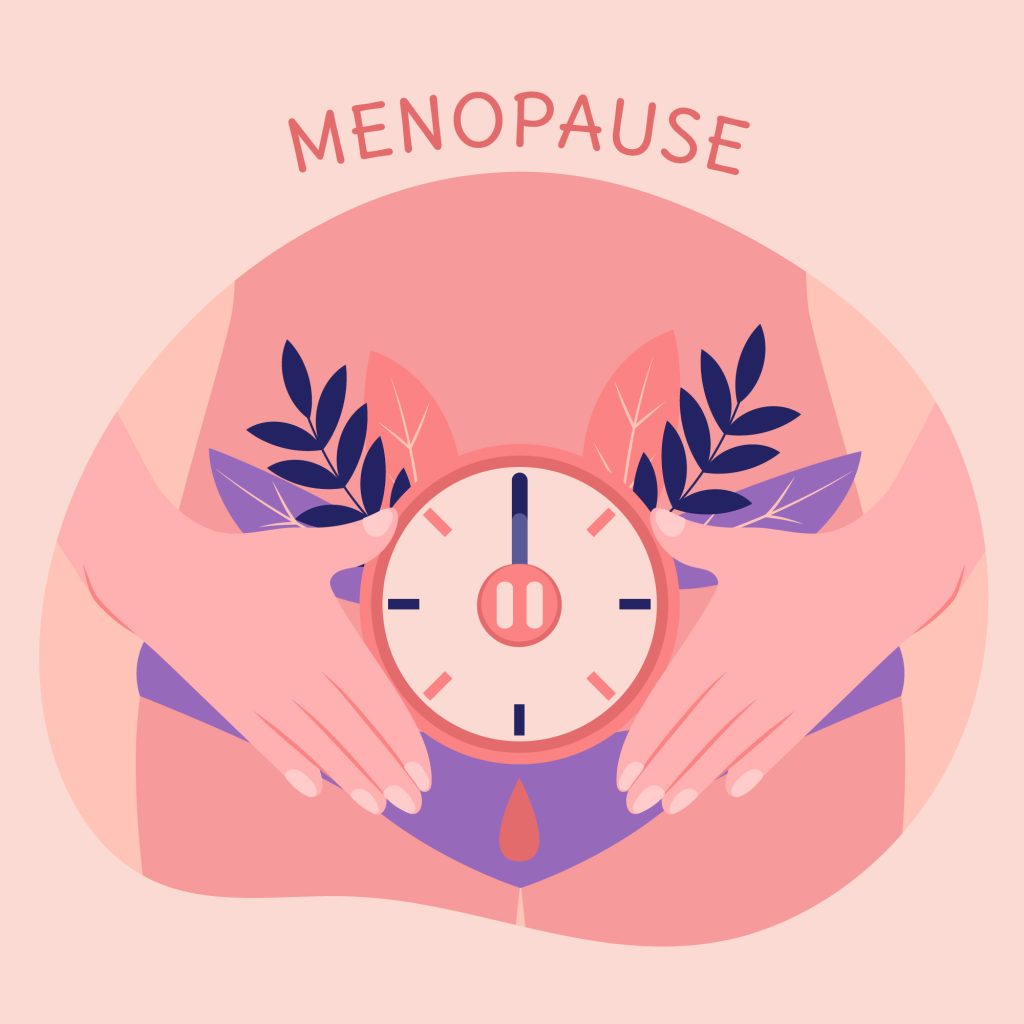Welcome to VitalBlog, your one-stop shop for all things health and wellness. In this blog post, we’ll be discussing menopause, a natural process that all women go through, typically between the ages of 45 and 55. It is marked by the cessation of menstruation and the decline in production of the hormones estrogen and progesterone. This can lead to a variety of physical and emotional changes, including:
- Hot flashes
- Night sweats
- Vaginal dryness
- Mood swings
- Difficulty sleeping
- Changes in weight
- Decreased libido
- Loss of bone density
- Increased risk of heart disease and stroke
While menopause can be a challenging time for many women, it is also an opportunity for new beginnings. By understanding the changes that occur during menopause and taking steps to manage them, women can thrive during this phase of their lives.

Tips for Managing Menopause Symptoms
There are a number of things that women can do to manage the symptoms of menopause, both naturally and medically.
Natural remedies
- Hot flashes and night sweats: Dress in layers, avoid caffeine and alcohol, and use a fan to cool down.
- Vaginal dryness: Use a vaginal moisturizer or lubricant, or try over-the-counter estrogen cream.
- Mood swings: Exercise regularly, get enough sleep, and eat a healthy diet.
- Difficulty sleeping: Establish a regular sleep schedule, wind down before bed, and avoid caffeine and alcohol before bed.
- Changes in weight: Eat a healthy diet and exercise regularly.
- Decreased libido: Talk to your partner about your needs, and try using a lubricant.
- Loss of bone density: Exercise regularly, eat a diet rich in calcium and vitamin D, and avoid smoking.

Medical treatments
If your symptoms are severe or do not respond to natural remedies, your doctor may prescribe hormone replacement therapy (HRT). HRT can help to relieve a variety of menopausal symptoms, including hot flashes, night sweats, vaginal dryness, and mood swings. However, HRT is not without risks, and it is important to discuss the potential benefits and risks with your doctor before deciding whether or not to take it.
Other medical treatments
Other medical treatments that may be used to manage menopausal symptoms include:
- Antidepressants: Can be used to treat mood swings and depression.
- Sleeping pills: Can be used to treat insomnia.
- Osteoporosis medications: Can be used to prevent bone loss.
Questions and Answers About Menopause
Here are some of the most common questions and answers about menopause:
Q: When does menopause start?
A: Menopause typically starts between the ages of 45 and 55, but it can start earlier or later.
Q: What are the symptoms of menopause?
A: The most common symptoms of menopause are hot flashes, night sweats, vaginal dryness, mood swings, difficulty sleeping, changes in weight, decreased libido, and loss of bone density.
Q: How long does menopause last?
A: Menopause is considered complete once a woman has gone 12 months without a menstrual period. However, the transition phase leading up to menopause, known as perimenopause, can last for several years.
Q: What are the risks of menopause?
A: Menopause is associated with an increased risk of osteoporosis, heart disease, and stroke.
Q: How can I manage the symptoms of menopause?
A: There are a number of things that women can do to manage the symptoms of menopause, both naturally and medically. Natural remedies include dressing in layers, avoiding caffeine and alcohol, using a fan to cool down, using a vaginal moisturizer or lubricant, exercising regularly, getting enough sleep, eating a healthy diet, and establishing a regular sleep schedule. Medical treatments include hormone replacement therapy (HRT), antidepressants, sleeping pills, and osteoporosis medications.
Q: Is menopause a bad thing?
A: Menopause is a natural process that all women go through. It is not a bad thing, but it can be a challenging time for many women. However, by understanding the changes that occur during menopause and taking steps to manage them, women can thrive during this phase of their lives.
Living Your Best Life During Menopause
In addition to the tips above, here are some additional tips for living your best life during menopause:
- Talk to your doctor. Your doctor can help you understand the changes that are happening to your body and develop a plan to manage your symptoms. They can also screen you for any potential health risks associated with menopause, such as osteoporosis, heart disease, and stroke.
- Join a support group. Talking to other women who are going through menopause can be helpful and supportive. There are many online and in-person support groups available.
- Take care of yourself. Eat a healthy diet, exercise regularly, and get enough sleep. These are all important things to do for your overall health, but they can also be especially helpful during menopause. Eating a healthy diet can help to reduce your risk of developing osteoporosis and heart disease. Exercise can help to improve your mood, reduce stress, and improve your sleep quality. Getting enough sleep can help to reduce hot flashes and night sweats.
- Do things that you enjoy. Menopause is a new chapter in your life. Make the most of it by doing things that you love. This could include spending time with family and friends, pursuing hobbies, or trying new things.
Here are some additional tips that may be helpful:
- Manage stress. Stress can worsen menopausal symptoms, such as hot flashes and mood swings. Find healthy ways to manage stress, such as exercise, yoga, meditation, or spending time in nature.
- Get regular checkups. It is important to see your doctor regularly for checkups and screenings. This is especially important during menopause, as your risk of certain health conditions increases.
- Don’t be afraid to ask for help. If you are struggling to cope with menopause, don’t be afraid to ask for help from your doctor, family, or friends. There are also many resources available online and in your community.
Menopause is a natural process that all women go through. It does not have to be a negative experience. By following the tips above, you can manage your symptoms and live your best life during menopause.







